Autumn Statement 2016 - How will the VAT Flat Rate Scheme Restriction Affect Contractors?
Article Author: Sumit Agarwal Posted on: November 25, 2016 (Full Author Bio in the box on the right side) 11896 views
11896 views
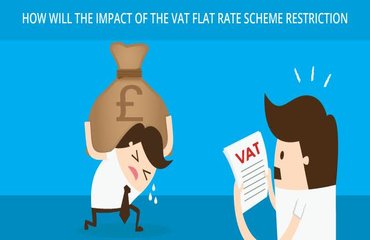
In his Autumn Statement, Chancellor Phillip Hammond announced important changes to the Flat Rate VAT Scheme (VAT FRS): from 1 April 2017, a new 16.5% rate will be introduced for businesses with limited costs, such as many businesses providing services.
Many contractors and small businesses were encouraged to use the VAT FRS to simplify VAT reporting. Many registered for VAT voluntarily before their turnover reached the VAT registration threshold, specifically to make use of the benefits of the VAT FRS.
All seemed to be going quite well, when, all of a sudden, the use of the 12% or 14.5% VAT Flat Rate Scheme rate by contractors and small businesses was seen as “aggressive abuse” by HMRC. Honestly, you wonder what’s going on, when HMRC designed the scheme to benefit small businesses, but when it actually benefits small businesses and contractors, they remove it!
The VAT FRS now
The VAT FRS was designed to simplify VAT reporting. At present, users ignore VAT incurred on purchases when reporting VAT payable, with the exception of capital items costing £2,000 or more. Users multiply the gross turnover (including VAT charged at the normal rates) by the FRS percentage set for the particular trade sector of their business.
Most service-related contractors and businesses use these percentages:
- Accountancy and legal services 14.5%
- Journalism or entertaining 12.5%
- Computer or IT consultancy 14.5%
- Business services not listed elsewhere 12%
- Estate agents and property management 12%
- Management consultancy 14%
What is the advantage?
There are definite advantages, because if few expenses are incurred and the VAT FRS user operates in a sector with a relatively low VAT FRS percentage, less VAT is paid to HMRC than would be paid at standard rates. This is why the Chancellor has announced this change, it’s a kneejerk response to criticism that contractors and small businesses have not been using the VAT FRS as the law intended. By changing the terms of the scheme, from April 2017, the VAT FRS will be much less attractive, and any cash advantage service-related contractors and businesses once enjoyed are all but removed.
The VAT FRS after April 2017
Although the VAT FRS will continue, the restrictions will make it less economically attractive for wide use. From 1 April 2017, a VAT FRS of 16.5%must be used by all “low-cost traders”. Low-cost traders are contractors / businesses whose expenditure on goods (not services) is less than 2% of gross turnover, or if more than 2% of turnover, when the amount spent on goods is less than £1,000 per year (where expenditure on capital items, motor expenses, or food or drink for consumption by the business, is ignored). In VAT terms, a service is:
- Anything intangible ‒ intangible assets are taxed on the basis of the location of the person consuming the thing supplied ‒ such as an IT consultant who fixes your broadband or a consultant who spends a day doing an audit of your systems;
- Costs related to a tangible asset ‒ a tangible asset is something that is taxed at the place where the thing is being consumed (a desktop computer), but not of a temporary use, of that asset – such as hiring a temporary staff member.
How will the change affect contractors?
All the trade sectors listed above will suffer, as will many other service-related businesses and contractors. As 16.5% of the gross turnover is equivalent to 19.8% of the net total, that leaves virtually zero credit for VAT incurred on purchases; and what’s more, the emphasis on “goods” discriminates against businesses who incur VAT on services (rent, software licences, IT support, digital journals, subcontractors, telecoms, etc).
What should contractors do now?
An immediate review of the VAT FRS is essential.
- Contractors trading under the VAT threshold of £83,000 could consider de-registering as of 1 April 2017;
- Some contractors trading over the threshold may need to withdraw from the VAT FRS from the same date;
- Some contractors trading under or at the threshold might benefit from continuing under the standard rate VAT and recovering VAT on expenses.
Conclusion
There are options according to individual circumstances and the situation needs urgent review. Please do not try invoicing early to avoid the changes: an invoice issued in advance for services to be provided on or after 1 April 2017 will be treated as if the invoice was issued on 1 April 2017.
Meanwhile, the Office of Tax Simplification has been asked to carry out a review on aspects of the VAT system, and keeping you posted as the details are announced will be our priority. However, unfortunately, this most recent reform spells the end of a generous benefit small business used to get. Now we all left wondering. Contractors and small businesses might have thought this government was rooting for them; Mr Hammond put production, innovation, and infrastructure at the heart of yesterday’s Autumn Statement. But if they’re supporting innovation, small businesses, and entrepreneurship, they’ve got a funny way of showing their support, when it seems they are doing everything to remove all the benefits that help make all the effort of running a business worthwhile. In case of any query regarding VAT Return and Registration, Please consult professional VAT Experts.
Latest Posts
-

Staying HMRC Compliant: VAT Returns Have Chan...
by Amanda Swales on January 29, 2020 Accounting & Tax -

Self Assessment Tax Return 101 - Filling In T...
by Amanda Swales on January 15, 2020 Accounting & Tax -

-



 FCSA submits its official response to the HMRC consultation
FCSA submits its official response to the HMRC consultation  Barclays and Citigroup are the latest to cut IT Contractor pay
Barclays and Citigroup are the latest to cut IT Contractor pay  Sole Enterprise with Protected Assets or Limited Company - Which is better for Contractors?
Sole Enterprise with Protected Assets or Limited Company - Which is better for Contractors? 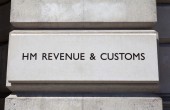 RIP Business Entity Tests
RIP Business Entity Tests  Is Umbrella Company the best solution for first-time Contractors?
Is Umbrella Company the best solution for first-time Contractors?  How will Autumn statement affect Contractors?
How will Autumn statement affect Contractors?  HMRC admits contractor tax change legislation needs a rewrite
HMRC admits contractor tax change legislation needs a rewrite  A checklist and timeline for new Contractors
A checklist and timeline for new Contractors  Benefits for Freelance Contractor Mortgages Insurance
Benefits for Freelance Contractor Mortgages Insurance  HMRC Employment Status Service tool - How accurate is it in determining the IR35 risk for contractors?
HMRC Employment Status Service tool - How accurate is it in determining the IR35 risk for contractors?  The future of IR35 in the public and private sectors
The future of IR35 in the public and private sectors  Why Brexit will not be an easy exit
Why Brexit will not be an easy exit  Umbrella Company and IR35
Umbrella Company and IR35  Budget is good for small business but still hurts contractors
Budget is good for small business but still hurts contractors  How IT Contractors can become an expenses wizard
How IT Contractors can become an expenses wizard  Fun ways to save money for the adventurous contractor
Fun ways to save money for the adventurous contractor  Relieve the stresses of Limited Company contracting with 4 simple solutions
Relieve the stresses of Limited Company contracting with 4 simple solutions  What a Directors loan means and who can take one
What a Directors loan means and who can take one 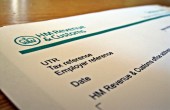 How Important is IR35 and Tax Planning to Contractor Accountants
How Important is IR35 and Tax Planning to Contractor Accountants  Intermediaries' legislation - IR35: What is the likely impact of the new rules for contractors working in the public sector?
Intermediaries' legislation - IR35: What is the likely impact of the new rules for contractors working in the public sector?  10 Must Have iOS Apps for UK Contractors
10 Must Have iOS Apps for UK Contractors  6 free tools all contractors should use
6 free tools all contractors should use  Festive Gift Ideas for Limited Company Directors
Festive Gift Ideas for Limited Company Directors  Professional Indemnity Insurance Explained
Professional Indemnity Insurance Explained  5 benefits of contracting through an umbrella company
5 benefits of contracting through an umbrella company  How to deal with unplanned time off for UK Contractors
How to deal with unplanned time off for UK Contractors 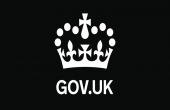 Parents working full time file petition for free childcare
Parents working full time file petition for free childcare  UK plc confused about T&S regulations says FCSA research
UK plc confused about T&S regulations says FCSA research  Why Contractors Need To Understand IR35
Why Contractors Need To Understand IR35  The true value of umbrella companies for UK contractors
The true value of umbrella companies for UK contractors  APSCo backs call for strategic review which could end raw deal for contractors
APSCo backs call for strategic review which could end raw deal for contractors  What forms do I need to submit In my tax return?
What forms do I need to submit In my tax return?  General Elections from the Tax perspective for UK Contractors
General Elections from the Tax perspective for UK Contractors  Why Contractors MUST Download TeraCopy Freeware
Why Contractors MUST Download TeraCopy Freeware  How the 2015 Budget could affect you as an Independent Contractor
How the 2015 Budget could affect you as an Independent Contractor  What is Contractor Mortgages and how to secure the best mortgage deal?
What is Contractor Mortgages and how to secure the best mortgage deal?  The rise of the female contractor
The rise of the female contractor  What all recruiters need to know
What all recruiters need to know  Why Contractors should never stop learning
Why Contractors should never stop learning  Why Contractors in trust based schemes should think twice
Why Contractors in trust based schemes should think twice  FCSA urges Osborne to get his facts right before tarnishing all contractors
FCSA urges Osborne to get his facts right before tarnishing all contractors  What is Required For Your First Digital VAT Return: Making Tax Digital
What is Required For Your First Digital VAT Return: Making Tax Digital  Great Chance to Win a Trip to Monaco for IT Contractors
Great Chance to Win a Trip to Monaco for IT Contractors  Personal Service Company Guide for UK Contractors
Personal Service Company Guide for UK Contractors  Changes to the Flat Rate VAT Scheme are coming - are YOU ready?
Changes to the Flat Rate VAT Scheme are coming - are YOU ready?  First Time Buyers take advantage of the new Help to Buy ISA
First Time Buyers take advantage of the new Help to Buy ISA  MP David Morris calls for new IR35 legislation for Contractors
MP David Morris calls for new IR35 legislation for Contractors  Where is your IT contracting career going
Where is your IT contracting career going  FCSA calls for HMRC to abandon its consultation on public sector use of off payroll staff
FCSA calls for HMRC to abandon its consultation on public sector use of off payroll staff  Beginners Guide to IT Contracting
Beginners Guide to IT Contracting  The top 3 common mistakes Contractors make
The top 3 common mistakes Contractors make  5 Trusted Contractor Services Providers in the UK
5 Trusted Contractor Services Providers in the UK  Why compliance has lost its meaning for contractors
Why compliance has lost its meaning for contractors  Understanding tax basics - a guide for contractors
Understanding tax basics - a guide for contractors  What does change in dividends mean to UK Contractors
What does change in dividends mean to UK Contractors  Election 2015 - what is in it for contractors and freelancers
Election 2015 - what is in it for contractors and freelancers  How much salary should I pay myself as a Limited Company Contractor
How much salary should I pay myself as a Limited Company Contractor  Is contracting the key to a successful and family-friendly career
Is contracting the key to a successful and family-friendly career  Why Contractors should set up a home office
Why Contractors should set up a home office  Contractors feel puzzled of the UK job market
Contractors feel puzzled of the UK job market  Autumn Statement 2016 - How will the VAT Flat Rate Scheme Restriction Affect Contractors?
Autumn Statement 2016 - How will the VAT Flat Rate Scheme Restriction Affect Contractors?  Chancellor announced dividend tax hike from April 2016
Chancellor announced dividend tax hike from April 2016  Why it is important for Contractors to network effectively
Why it is important for Contractors to network effectively  How IR35 reforms in the private sector going to affect the self-employed?
How IR35 reforms in the private sector going to affect the self-employed? 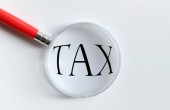 IR35 IT Contractors And Office Holders
IR35 IT Contractors And Office Holders  Amendments in Finance Bill to prevent misuse of Personal Service Companies
Amendments in Finance Bill to prevent misuse of Personal Service Companies  What can Limited Company contractors expect from the Budget 2017?
What can Limited Company contractors expect from the Budget 2017?  Top 5 things a first-time Contractor should do when switching to Contracting
Top 5 things a first-time Contractor should do when switching to Contracting  How can a contractor be a winner in the tax race
How can a contractor be a winner in the tax race  5 New Contractor Mortgages Friendly Lenders Enter The Market
5 New Contractor Mortgages Friendly Lenders Enter The Market  The 10 commandments of contracting
The 10 commandments of contracting  Simple guide to Tax relief on Motor expenses and business mileage
Simple guide to Tax relief on Motor expenses and business mileage  How does the recent IR35 changes in the public sector affect UK contractors?
How does the recent IR35 changes in the public sector affect UK contractors?  Is there light at the end of the tunnel for UK Contractors
Is there light at the end of the tunnel for UK Contractors  Contractor paid 2500 GBP to HMRC for tax return mess up
Contractor paid 2500 GBP to HMRC for tax return mess up  The golden rule of Contracting
The golden rule of Contracting  First Time Buyers get cashback on Contractor Mortgages
First Time Buyers get cashback on Contractor Mortgages  Will the low rates mortgage price war benefit UK Contractors?
Will the low rates mortgage price war benefit UK Contractors?  The Taxman is going to war on UK Contractors
The Taxman is going to war on UK Contractors  What is the 24 month rule and how does it apply to Contractors
What is the 24 month rule and how does it apply to Contractors  How important is it to protect your income as a contractor
How important is it to protect your income as a contractor  How will the new tax year affect IT Contractors and Umbrella Companies
How will the new tax year affect IT Contractors and Umbrella Companies  Top 10 cash flow tips for IT Contractors
Top 10 cash flow tips for IT Contractors 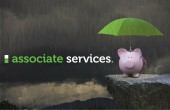 Why Contractors should save for a rainy day
Why Contractors should save for a rainy day  Registrar of Companies Scam Letter sent to Businesses
Registrar of Companies Scam Letter sent to Businesses  Is it time to break up with your Accountant
Is it time to break up with your Accountant  How HMRC continue to confuse matters for Contractors and Agencies
How HMRC continue to confuse matters for Contractors and Agencies  How to avoid time between contracts
How to avoid time between contracts  Do I Need To Complete The Self Assessment? How To Know If You Have A Tax Return Due
Do I Need To Complete The Self Assessment? How To Know If You Have A Tax Return Due  Insulting to Contractors
Insulting to Contractors  How will Supervision Direction or Control rules affect Contractors
How will Supervision Direction or Control rules affect Contractors  Doubt is cast on HMRC new IR35 proposals for contractors
Doubt is cast on HMRC new IR35 proposals for contractors  RTI offers annual option for contractors
RTI offers annual option for contractors 

